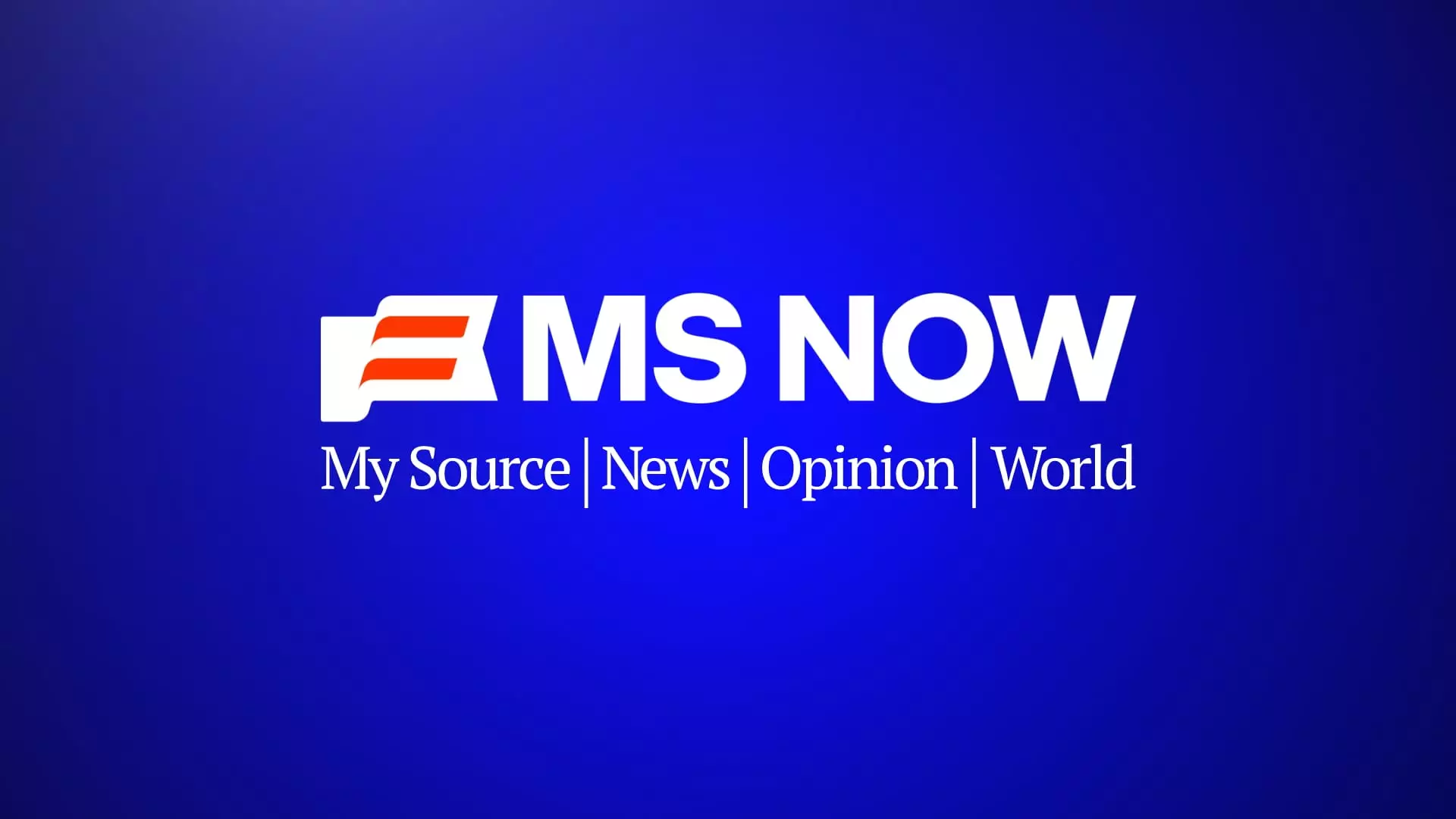In a strategic move that raises more questions than answers, MSNBC is set to undergo a rebranding that strips the network of its iconic peacock logo and gives it a new name—My Source News Opinion World (MS Now). While executives present this change as merely an effort to distinguish MSNBC from NBC News and foster independence, the deeper implications suggest a troubling shift in the nature of the network’s journalism. In an era where media shapes public perceptions with increasing influence, such rebranding signals a move away from committed, objective reporting towards a more opinion-driven model that tilts dangerously toward partisan narratives.
The decision to rename Microsoft’s MSNBC reflects more than a superficial branding exercise; it exemplifies the broader tendency of contemporary media to blur the lines between fact and opinion. The network’s insistence that its journalistic purpose remains unchanged ignores the underlying reality: branding is a powerful tool that influences audience perception. When a legacy network sheds its traditional identity—especially a respected brand like MSNBC—the message is that the core values and impartiality associated with the name are less relevant or possibly even problematic in a polarized political environment.
The Politics Behind the Rebranding
From the outset, MSNBC has often been perceived as leaning left, with its prime-time programming featuring strong ideological commentary. The official stance from leadership claims that the shift is purely organizational, aiming for independence from NBC News to build a more modern, journalistic institution. Yet, the timing and nature of this change reveal a different narrative: MSNBC’s repositioning is part of a calculated effort to create a media platform more aligned with conservative and center-right audiences—those who feel underserved or misrepresented by mainstream outlets.
The removal of the peacock logo—symbolic of NBCUniversal’s broad media empire—further underscores the intent to craft a distinct identity. This separation ensures that MSNBC’s viewers are no longer drenched in what some perceive as corporate liberal bias but are instead offered a “news source” that claims to prioritize their values and perspectives. In essence, the rebranding appears to be a strategic pivot to cater to a segment of the American population that values traditional, center-right values over the increasingly polarizing progressive narrative that has dominated much of cable news in recent years.
The Consequences for Public Discourse
The implications of such a rebrand reach beyond mere aesthetics. America is currently mired in a media environment where trust in mainstream outlets has plummeted, and polarization is at an all-time high. The shift away from a logo symbolizing mainstream credibility to a name emphasizing opinion and source reflects a broader trend—an erosion of the critical boundary between factual reporting and ideological commentary.
This transformation risks deepening divides by encouraging echo chambers. When networks declare independence but shift toward partisan framings, they reinforce existing biases rather than challenge them with balanced journalism. A network that openly markets itself as a “source of opinion” rather than an objective purveyor of facts effectively invites viewers into an ideological bubble—an environment that diminishes the quality of public discourse and undermines the democratic need for informed citizens.
A Cautionary Tale for the Future of Journalism
The decision by Versant to give MSNBC a new identity amid aggressive hiring for a separate newsroom signals a shift toward a more fragmented media landscape. The move to differentiate MSNBC from NBC News is not simply administrative; it is emblematic of a wider trend toward the privatization of news content, where ideological alignment and political loyalty become part of a brand’s core identity.
As the network prepares to launch an extensive marketing campaign to promote its new name, questions arise about the sincerity of this “independent” stance. Are we witnessing the birth of a news outlet primarily designed to serve a political constituency rather than provide objective, fact-based reporting? If so, the consequences for civic literacy and the integrity of American journalism could be profound. This is a step towards a media ecosystem where trust is sacrificed for ideological conformity, risking the very foundation of democratic debate.
The rebranding effort is not just a cosmetic change—it signifies a willingness in large parts of the media industry to prioritize audience loyalty over journalistic integrity. As viewers, we should be wary of superficial branding that masks deeper ideological shifts, because in the battle for public opinion, truth and neutrality cannot afford to be sidelined.

